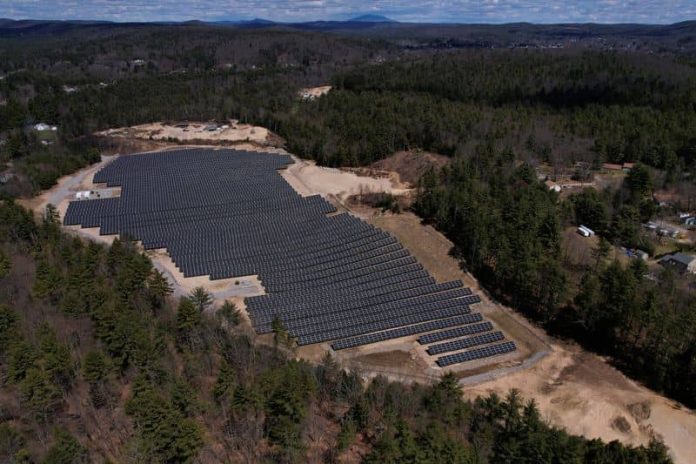(Reuters) – A new regulation will formalize a roughly 80% cut in project fees for wind and solar energy developments on federal lands under a proposal by the Biden administration on Thursday as part of a strategy to boost renewable energy to fight climate change.
The Interior Department’s U.S. Bureau of Land Management (BLM) last year had lowered rent fees and lease rates for solar and wind by about 50%, using departmental authority, after developers complained they were too high to draw investment.
Thursday’s proposal from the Interior Department would deepen those fee reductions and enshrine the changes in a formal regulation – making them harder to reverse under a future political administration.
President Joe Biden wants to decarbonize the U.S. electricity sector by 2035, a goal that will require rapid deployment of large amounts of wind and solar energy. The BLM manages one in every 10 acres of land in the United States and Interior has a congressional mandate to permit 25 gigawatts (GW) of renewable energy on federal lands by 2025.
In a statement, Interior said BLM’s proposed rule would reduce project fees by about 80% and would enable the agency to accept leasing applications in priority areas for wind and solar development outside of competitive auctions.
The agency is also weighing additional fee reductions for projects using American-made equipment or built with union labor. Those proposals are aligned with Biden’s pledge that fighting climate change can revitalize U.S. manufacturing and create well-paid union jobs.
BLM will accept public comments on the proposal for 60 days and aims to finalize a rule next year.
The agency is currently processing 74 applications for solar, wind, geothermal and transmission lines linked to clean energy development. Combined, they have the potential to add more than 37 GW of renewable energy to the grid.
“Our public lands are playing a critical role in the clean energy transition,” BLM Director Tracy Stone-Manning said in a statement.
BLM is also in the process of identifying new areas for solar development in the Western United States.



















